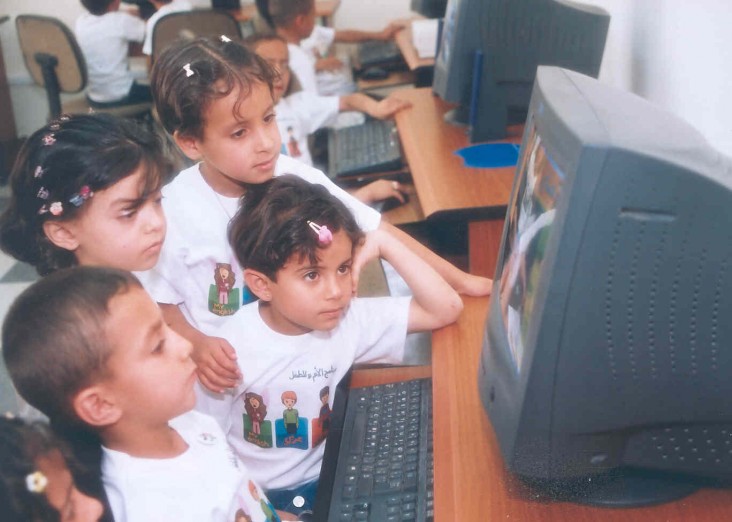
Kindergarten administrators, parents, and staff at the computer-equipped community centers were skeptical. They did not think there would be any real benefit to a pilot project to teach children and their mothers how to use computers. The idea was to introduce mothers and children from rural communities to the basics of computer use, and show them how to tap into education software that teaches English, Arabic, mathematics, and problem-solving skills.
Despite the skepticism, USAID persisted and created a partnership with government-funded Knowledge Stations, the Minister of Information Communications and Technology, private software firms, and NetCorps, an organization dedicated to increasing global access to information technology.
Together, USAID and its partners went to select rural communities with existing access to computers and Internet. Using “edutainment” software developed for the program, NetCorps volunteers trained the mothers and children in using the computers and software. The pilot project has graduated 75 children and 22 parents from the program. An evaluation of the program showed that the graduates all improved their English, Arabic, mathematics, and problem solving skills.
“My five-year-old, as well as the other children, learned the Arabic and English alphabets as well as how to form different words and pronounce them correctly,” said program graduate Sheikha Al Wahsha, 36 and a mother of six.
Despite the initial skepticism, participants and partners expressed enthusiasm for the program’s results and now want to see it expand to other parts of Jordan.







Comment
Make a general inquiry or suggest an improvement.